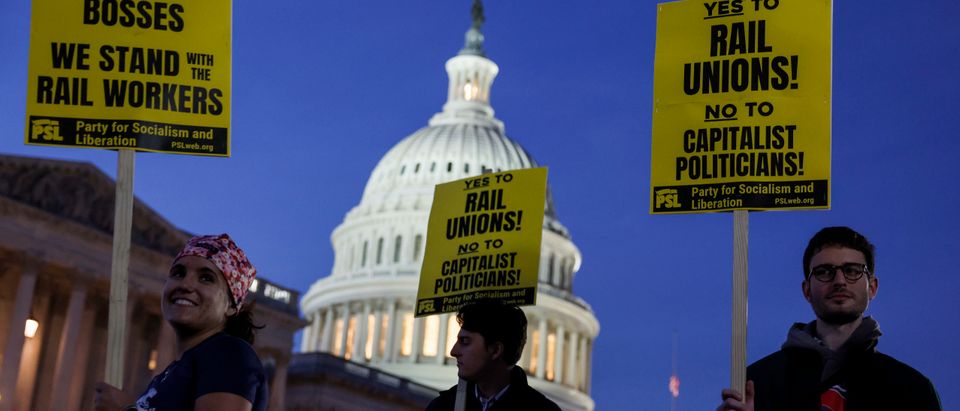The Senate voted Thursday to enforce a contract negotiated between railway companies and twelve unions, avoiding a likely economy-crippling strike.
Railway workers from four out of the twelve major unions refused to ratify a contract negotiated by the White House and threatened to commence a strike on Dec. 9. A walkout would cause more than 765,000 Americans to lose their jobs and imperil the country’s clean water supply, President Joe Biden said in a statement asking Congress to enforce the contract under the Railway Labor Act of 1926.
The Senate voted 80-15 to enforce the contract negotiated by Labor Secretary Marty Walsh and Transportation Secretary Pete Buttigieg. It includes a 24% raise over five years, but does not add paid sick leave. An amendment to include paid sick leave required 60 votes, and failed 52-43. The bill now goes to Biden for signature. (RELATED: Sen. Marco Rubio Sides With Unions In Ongoing Railroad Dispute)
After Cruz voted for the amendment to mandate seven days of paid sick leave for rail workers, he walked over and gave Bernie Sanders a fist bump. Vote is ongoing
— Manu Raju (@mkraju) December 1, 2022
The vote to add seven days of paid sick leave featured a fist bump between Republican Texas Sen. Ted Cruz and Independent Vermont Sen. Bernie Sanders, both of whom supported the sick leave. The House passed sick leave along party lines as a separate resolution to prevent it from holding up the larger agreement.
“Congress should have sent everyone back to the negotiating table, but instead it told rail workers to suck it up and be grateful. If we had to get involved, we should have worked to meet the demands of the workers instead of appeasing labor leaders and companies. Because the truth is that the companies risked a nationwide shutdown of freight rail because they wouldn’t give their workers any paid sick days,” Republican Florida Sen. Marco Rubio, who voted against the final bill, said in a statement.
“America’s freight rail industry is critical to our economic success, and there is no doubt that it has been a financial success recently, paying out about $200 billion in dividends and stock buybacks over the past 12 years. But financial success is not the sole measure of what is good for our nation.”


